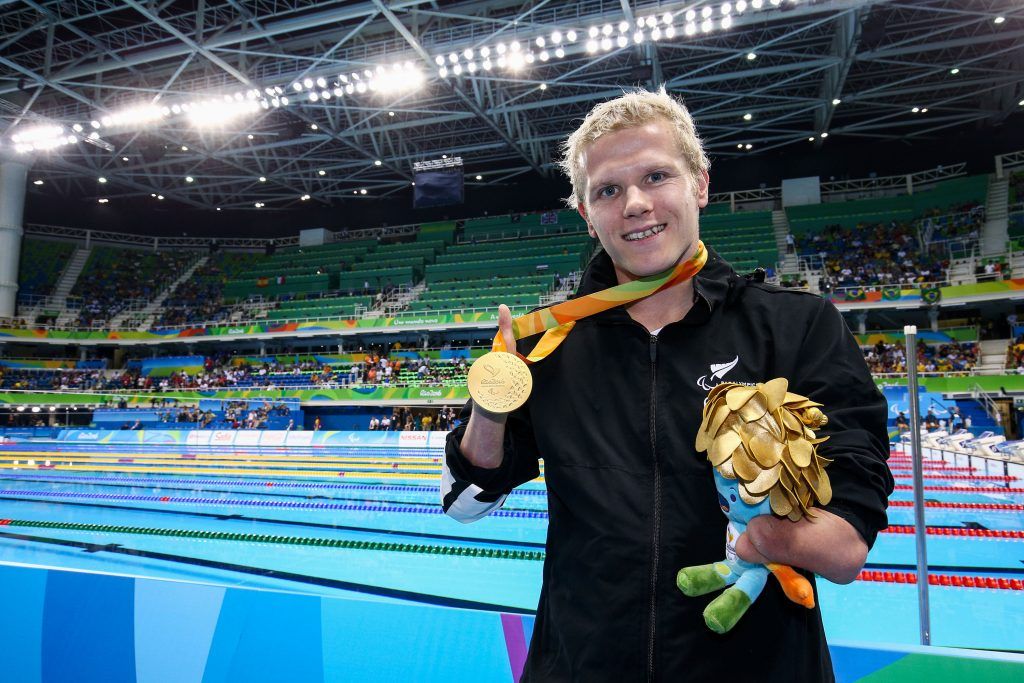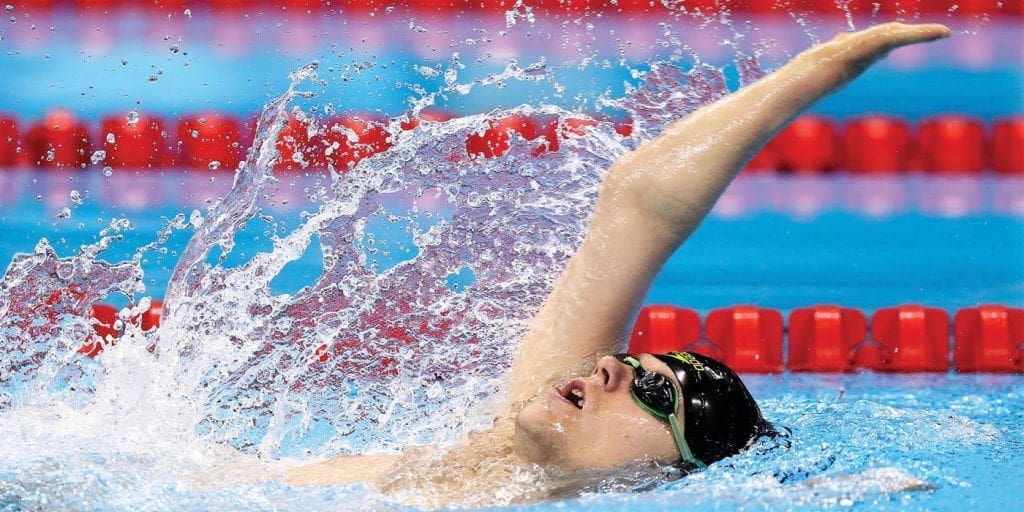From Gold to Golden
A top athlete reaches their zenith by fully immersing themselves into the sport. Countless hours of training, sacrifice, and dedication, all in the pursuit of the title of being ‘the best’.
There are numerous sports and disciplines, but every athlete participates in an even more important race – the race against time. The mind might always be willing, but eventually Father Time (or injury) will dictate when you have to call it quits. When you’ve devoted yourself to a sport for so long and you can’t compete any more, where do you turn?
Launched in 2005, the IOC and IPC Athlete Career Programme helps athletes transition to a career after sport, equipping them with resources and training to maximise their opportunity for employment and education. We talked to three-time gold medal-winning Paralympian swimmer Cameron Leslie about his love of swimming, the challenges Paralympians face and his plans for life after competition.
Where did your love of swimming begin?
I’m a Northland boy, so being around the water was just something you did. I loved being in, on or around the water, so I wanted to learn how to swim properly. In doing that, I found my competitive side and decided I liked to win, so I trained hard to give myself a good shot at winning.
When did you realise you had serious talent?
Probably not until I won gold at the Beijing 2008 Paralympics. I had only set a goal of finishing top six, but then I came home with gold and a world record. I had no idea I was capable of doing that, nor was that my goal. After that, I sort of realised I must be good if I can win and get a world record.
Was a career in swimming always the plan? Did you have a fall-back plan in place?
I play wheelchair rugby as well [but] I don’t have a fall-back plan as such, with my sport. I do sport because I enjoy it and whatever happens will happen. I never went out to set the world on fire and have always thought that as long as I’ve done a personal best, or can honestly say ‘there’s nothing else I could have done’, then I’d be happy with whatever outcomes came my way. Wheelchair rugby is such a fun sport, though, it’s so different to swimming in terms of how you win and the people involved are so different also.
What’s your training regimen like?
It’s full-time. It’s a case for me of training smarter rather than harder. Because I’m an old head in sport, I know my body well and it’s a lot about life balance for me. I’m the sort of person that if sport is taking all of my time, then I don’t enjoy it.
Physical training is obviously vital to attaining success, but the mental game is just as important. How do you maintain focus and drive?
Yeah, there’s a lot of talented athletes out there and if you can’t connect that talent with the top two inches, then it’s hard to succeed. During competition, I like to constantly relax because it’s such a normal reaction to get nervous. I do that by listening to reggae music rather than the intense music you hear some athletes listening to. In terms of week-to-week training, it’s about remembering why you’re doing that training.
Do you still feel ‘nerves’ on the big stage?
Absolutely. It’s nerve-wracking stuff, to compete in front of a crowd, especially when there’s the potential to lose or mess up. I think nerves are normal and natural, it’s just about acknowledging they’re there and that it’s a positive thing, so you can move on and put all that training to work in a competition environment.

You’ve won gold at Beijing, London and Rio – is there a gold medal win that sticks out the most for you?
No, not really, they’re all so different, and the circumstances around each of them is different. Beijing was amazing for the shock factor: this young kid who hadn’t really done much to warrant any chance of winning took out gold. London [meant] the defending champion nerves, I’d gone from being the hunter to being the hunted, so I had to deal with people coming to knock me down from the top. Rio was pretty much the ultimate race; performance-wise, it was the most satisfying, as every goal we’d set for the race was achieved and nailed.
What are the biggest challenges Paralympians face?
There are a few there. One is obviously the physical impairments and, depending on their disability, there are sometimes challenges that people don’t see on the outside – whether it be reoccurring health issues or something as simple as the length of time it takes to do some things. For me, it’s energy expenditure: being a double above-knee amputee I use a lot more energy than an able-bodied person just getting around on prosthetics. Paralympians also face funding issues, although, in my career that’s definitely got better. An example on the funding side of things is getting a company to see the benefit in sponsoring a disabled athlete and how their disability can align with a company’s goals or beliefs.
What are big goals you’ve set yourself outside of swimming?
Outside of swimming? Outside of swimming I’m all about goals and planning ahead. I’m not someone who just floats from week to week, I need to know what is coming up and plan for that.
Tell us about your involvement with Adecco and the ACP.
My brother and I started a business together rearing calves, and I heard about the ACP. Because I was based in Auckland at the time, training, I couldn’t help out much in the day-to-day duties, so my role became more about planning ahead and keeping the books organised. I used the ACP to help gain a better understanding of accounting and learning what I can do to help the business be better. It’s a pretty cool opportunity and I’m glad something like this exists, because it works so well for athletes. For me, the flexibility of learning is massive as it could fit around training.
What are some tools and strategies the ACP gives athletes?
I guess it depends on what you’re doing with it. For me it’s all about learning things while immersed in a high-performance training environment.
What skills and career paths can athletes take post-career?
I think athletes can go wherever they like post-career, it’s just about planning for that and being realistic while you’re competing. I’m a big fan of planning ahead because you’d be kidding yourself if you think being an athlete will last forever. That’s one thing the ACP does for athletes, you can learn about various careers or aspects of those careers that can help you make a well-educated decision when it is time to move on as an athlete.
What steps should athletes take to ready themselves for after their competing days are over?
Planning for the future and being realistic. It is true that one injury can spell the end of your athletic career, don’t think you’re bulletproof and that it won’t happen to you.
What are your plans for when your swimming days are over?
My brother and I rear calves, so I’m keen to pursue that more and turn it into a career. I also completed a Bachelor of Communications degree majoring in journalism at AUT, so there’s always the option of going back to journalism (I was previously the sports editor at The Northern Advocate in Whangarei).
Where do you see yourself 10 years from now?
On a farm, living a quiet life.
How do you define success?
I don’t see it as being about how much money you have or anything like that, it’s more about the experiences and people who you have helped along the way.
How do you want to be remembered?
Tough question. I guess I like to pride myself on helping younger athletes, whether that’s in a small or big way. I like to give back.

